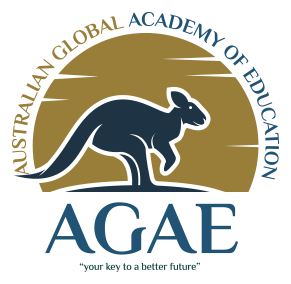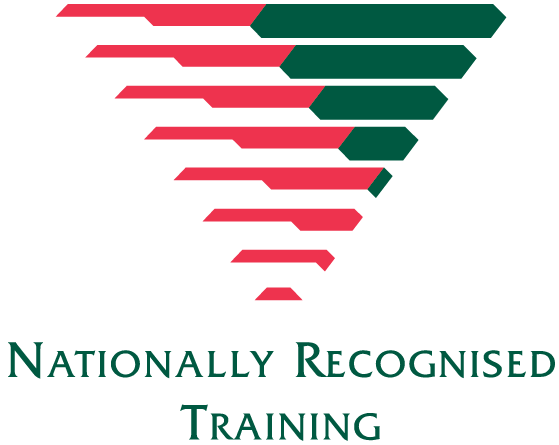Qualification Description
This qualification reflects the role of educators in early childhood education and care who work in regulated children’s education and care services in Australia. They support children’s wellbeing, and development in the context of an approved learning framework. Educators use a range of well-developed skills and knowledge using discretion and judgment when carrying out their work in the context of established policies and procedures. They may work independently or under the guidance of others, though in some contexts that guidance may not be on-site.
No occupational licensing, certification or specific legislative requirements apply to this qualification at the time of publication.
Under the Education and Care Services National Law (2011) the Australian Children’s Education and Care Quality Authority (ACECQA) publishes lists of approved early childhood education and care qualifications and information regarding regulatory requirements here: www.acecqa.gov.au.
Who is the course suitable for ?
The CHC30121 Certificate III in Early Childhood Education and Care is ideal for individuals who aspire to pursue a career in the early childhood education sector.
It is designed for anyone passionate about providing care and education to children during their formative years, contributing to their growth and development.
This qualification reflects the role of educators in early childhood education and care who work in regulated children’s education and care services in Australia. They support children’s wellbeing, and development in the context of an approved learning framework. Educators use a range of well-developed skills and knowledge using discretion and judgment when carrying out their work in the context of established policies and procedures. They may work independently or under the guidance of others, though in some contexts that guidance may not be on-site.
Course Duration
- 12 months
All students are to engage in at least 10 hours of supported self-paced learning each week during the course. Supported self-paced learning is to be undertaken by the students outside of the scheduled hours according to the students’ individual learning needs. However, to support the students AGAE will provide a self-study guide that links to self-paced learning activities to these scheduled timetables.
Mode of delivery
- Face to Face and/or Live Zoom Sessions
Training Location
- Victoria: GO2/1510 Pascoe vale Road, Coolaroo Vic 3048
- Dandenong: Suit 4/106 Foster Street, Dandenong Vic 3175
- SA: 225 South Rd Mile End SA 5031
- WA: Live-zoom sessions
Work Placement
To achieve this qualification, the individual must have completed a total of least 160 hours of work in a regulated children’s education and care service in Australia as detailed in the Assessment Requirements of units of competency. The total number of hours may be applied collectively across all units of competency that include the requirement for workplace hours.
Course Structure
To be awarded the nationally accredited certificate for CHC30121 Certificate III in Early Childhood Education and Care, a student must successfully complete a total of 17 units, comprising 15 core units and 2 elective units.
| Unit Code | Unit Name | Core / Elective |
|---|---|---|
| CHCECE030 | Support inclusion and diversity | Core |
| CHCECE031 | Support children’s health, safety and wellbeing | Core |
| CHCECE032 | Nurture babies and toddlers | Core |
| CHCECE033 | Develop positive and respectful relationships with children | Core |
| CHCECE034 | Use an approved learning framework to guide practice | Core |
| CHCECE035 | Support the holistic learning and development of children | Core |
| CHCECE036 | Provide experiences to support children’s play and learning | Core |
| CHCECE037 | Support children to connect with the natural environment | Core |
| CHCECE038 | Observe children to inform practice | Core |
| CHCECE054 | Encourage understanding of Aboriginal and/or Torres Strait Islander peoples’ cultures | Core |
| CHCECE055 | Meet legal and ethical obligations in children’s education and care | Core |
| CHCECE056 | Work effectively in children’s education and care | Core |
| CHCPRT001 | Identify and respond to children and young people at risk | Core |
| HLTAID012 | Provide First Aid in an education and care setting | Core |
| HLTWHS001 | Participate in workplace health and safety | Core |
| CHCDIV001 | Work with diverse people | Elective |
| CHCPRP003 | Reflect on and improve own professional practice | Elective |
What resources are used to deliver the training ?
Student Handbook
A comprehensive Student Handbook will be provided to each student. This document outlines the course structure, objectives, key concepts, and guidelines, serving as a reference throughout the program. It also includes essential information on safety protocols and best practices. The handbook contains:
- Key learning points and summaries for each unit
- Theoretical readings and additional resources to deepen understanding
This resource ensures students are well-equipped to navigate the course and apply their knowledge effectively.
Textbook
The Textbook for students studying the Certificate III in Early Childhood Education and Care provides essential information to help them navigate through the course content, practical tasks, and assessments. It serves as a comprehensive resource that supports students’ learning and ensures they understand the key concepts, skills, and requirements they need to succeed in the field of early childhood education.
Students are required to purchase their own textbooks at their own expense. For detailed information on the required textbooks, purchasing process, and related details, please inquire during the enrolment process.
By following the guide, students can ensure that they meet all course requirements and are fully prepared to enter the workforce as qualified early childhood educators.
Presentation Slides
Presentation slides are used by the trainer during the course delivery to visually support key concepts and discussions. These slides summarise the main points from the Textbook, helping students follow along and engage with the material. They may include:
- Diagrams and charts
- Example scenarios and case studies for group discussion
Practical Equipment & Tools
During practical sessions, students will typically use a variety of practical equipment and tools to support their learning, develop their skills, and gain hands-on experience relevant to the field. Some of the common equipment and tools they may use during their studies include:
- Childcare Centre Simulations: At AGAE, training spaces are specifically designed to replicate real-world childcare environments, allowing students to practice and refine their skills.
These tools and simulations provide students with the practical experience needed to effectively care for and educate children, bridging the gap between theoretical learning and real-world practice in early childhood education.
Risk Assessment Templates
Students will be provided with templates to conduct risk assessments. These templates guide learners in systematically evaluating hazards, assessing risks, and developing control measures for a variety of work-related situations. They are an essential resource for both individual and group activities, ensuring a structured approach to safety and risk management.
Assessment Tools
Assessment tools will include:
- Knowledge questionnaires to assess understanding of early childhood education theories, developmental psychology, curriculum planning, child protection, and health and safety standards.
- Students are required to observe and document children’s behavior, development, and interactions during placement or simulated settings. These records are assessed for accuracy, detail, and the ability to analyze and interpret child behavior.
- A workplace project template to guide students through conducting a child observation and risk assessment.
These tools ensure that students are assessed on both their theoretical knowledge and practical application of safety practices.
Assessment Arrangements
- Assessments are designed to allow the students to exhibit competencies in the unit(s) of competency.
- Assessment’s methods can include practical tasks, project, written responses, role play, supervisors report, case studies, etc.
- Information about assessment requirements will give out in the first class and explained clearly by the trainer/assessor.
- Students are not graded but deemed “Competent” or “Not Yet Competent”.
- Students can appeal an assessment outcome.
Student Support
AGAE offers a range of support services to meet everyone’s needs. Please contact AGAE directly for assistance with your requirements.
What can I do once I have completed my qualification ?
Upon completing the CHC30121 Certificate III in Early Childhood Education and Care, you will be qualified to work with children in a variety of settings, providing essential care, education, and support. Also, the qualification may lead you to further study and expend the careers within the early childhood education field.
Career Pathways
This qualification prepares students to work with children in a variety of settings, providing essential care, education, and support. Possible job roles and employment opportunities on completion of this course may include:
- Early Childhood Educator
- Family Day Care Provider
- Education Support Worker
- Kindergarten Assistant
- Nanny
Education Pathways
Upon completion of CHC30121 students may wish to progress completing:
- CHC50121 Diploma of Early Childhood Education and Care.
- Bachelor’s Degree of Early Childhood Education
AGAE does NOT guarantee any;
- Licensing outcome
- Employment outcome
- Successful completion of this course
Are there any prerequisites or entry requirements ?
There are no entry requirements for this qualification.
The RTO has the following admission requirements:
- Students must be 18 years of age.
- AGAE requires all enrolment and payment details to be completed, includes USI number, prior to attending.
- Basic computer / IT skills.
- All applicants are required to participate in a pre-course interview prior to enrolment to evaluate their eligibility for the course.
- Students must undertake Language, Literacy and Numeracy test prior to enrolment. To gain entry into this course, student must have been determined as having the appropriate LLN capability.
- This program has been designed to be delivered through classroom-based delivery and students must have the ability to attend the scheduled sessions as per the timetable and must have access to a computer and the internet to complete self-study work. Students are to be informed of the timetable on enrolment and must maintain the required student contact hours.
- Students must be prepared to follow industry dress code standards for the work placement component of the course.
- This course has no Entry Requirements, however, prior to work placement, students will be required to obtain a Working with Children’s Check, National Police Check, and First Aid training at their own cost.
- Applicants need to have the mental, emotional, and physical capability and willingness to work with children (infants, babies, toddlers, and school age children) for extended hours on a daily basis.
- Applicants must identify any issues including mental, emotional, and physical issues of relevance to this occupation and training at the time of registration.
South Australia:
All students who are seeking to access to training are required to participate in the Upfront Assessment of Need process. For more details about the UAN assessment visit:
- Individuals who are unwilling to participate fully in all aspects of the UAN process may instead choose to undertake training through fee for service arrangements.
- Suitability to ensure there is a good fit between the individual and the qualification of choice support requirements to ensure early identification and planning for individual learning, personal or complex needs.
- Literacy and numeracy to ensure wherever possible the individual can, if otherwise suitable, undertake a vocational qualification with additional foundation skills training OR to provide a clear evidence base of need for accessing a foundation skills qualification.
The requirement to provide a Unique Student identifier (USI)
All students are required to obtain a Unique Identifier (USI) prior to enrolment or provide evidence if exemption from obtaining a USI. A student can obtain a USI by visiting the following website to create a USI number:
If a student has already previously obtained a USI number but does not know it, they can go to the website to obtain their USI:
Student can also sign a USI consent form to allow AGAE to search or create a USI number on their behalf. AGAE will not issue an AQF qualification if the student fails to adhere to this requirement.
Skills Recognition
Under the Australian Qualification Framework (AQF), AGAE accepts and provides Credit and Recognition of Prior Learning (RPL) to learners for units of competency and/or modules (unless licensing or regulatory requirements prevent this) where these are evidenced by:
- AQF certification documentation issued by any other RTO or AQF authorised issuing organisation,
- Authenticated VET transcripts issued by the Registrar
Obtaining your certificate or Statement of Attainment after successfully completing your course:
- AGAE will issue a certificate within 30 calendar days of successful completion of the course, provided all requirements are met, fees are fully paid, and the USI (Unique Student Identifier) has been supplied.
- For students who partially complete the course successfully, a Statement of Attainment will be issued, provided that all fees are fully paid, and the USI has been supplied.
Fees:
South Australia Funded Student: $599 ‘Participant Eligibility Criteria apply’ for to be eligible for South Australia Funded Student fees. *Supported by the Government of South Australia
You can check your eligibility at:
- Must be 18 years and above and not enrolled at school
- An Australian or New Zealand Citizen (Funded and Non-Funded Course) or
- A permanent Australian Resident or
- An eligible visa holder (Funded and Non-Funded Course) for more details on eligibility for funding courses visit:
https://providers.skills.sa.gov.au/Deliver/Student-eligibility-for-subsidised-training
Victoria Funded Student:
$100 ‘Participant Eligibility Criteria apply’ for to be eligible for Victoria Funded Student fees.
*Supported by the Government of Skills Victoria.
Western Australia Funded Student:
FREE and supported by Government of Western Australia
* Eligibility criteria apply.
Other States:
The cost for the full course for non-funded students is $2,900. This includes all tuition materials, administration fees, and training materials to complete the course. Students will be required to pay a deposit of $500 at the time of enrolment. Students/candidates can then either pay the balance in full upon commencement of the course or use the payment plan option available, which consists of five monthly instalments of $480.
AGAE does not take more than $1,500 as part of monthly instalment at any one time.
Cooling off period
Our refund policy is included in the agreement that you are required to sign to indicate acceptance of the offer of enrolment and all the terms and conditions specified. All self-funded course fees include a non-refundable deposit as outlined on the Course Outline and Student Agreement, which must be paid to secure a student’s place in the course.
The deposit is non-refundable except in the instance where AGAE is required to cancel a course due to insufficient numbers or for other unforeseen circumstances.
Students who withdraw from a course and wish to seek a refund or have the amount they owe on their fees reduced must apply to AGAE in writing, outlining the details and reason for their request.
Students who have not completed a withdrawal form are not eligible for consideration of a refund or reduction in fees. Eligibility for a refund will be assessed based on the services provided to the student and the costs incurred by AGAE in order to provide those services to the student. The outcome of the refund assessment will be provided by written notice to the student’s registered address outlining the decision and reasons for the decision along with any applicable refund or adjustment notice.
AGAE adheres to the cooling-off period as specified according to Australian Consumer Law. Further details can be accessed in the AGAE’s Student Handbook which is available on our website: https://www.agaeducation.com.au/
How to Enroll
To enroll in this course, please complete the Enrolment Form available on the website and email it to: admin@agaeducation.com.au
Or you can call us on:
- South Australia: (08) 7480 3318 / 0451 600 626
- All other states: (03) 8313 3249 / 0451 600 626
We will contact you to discuss your needs prior to finalising your enrolment.
‘Please ensure you read our Student Handbook along with this Course Outline’





